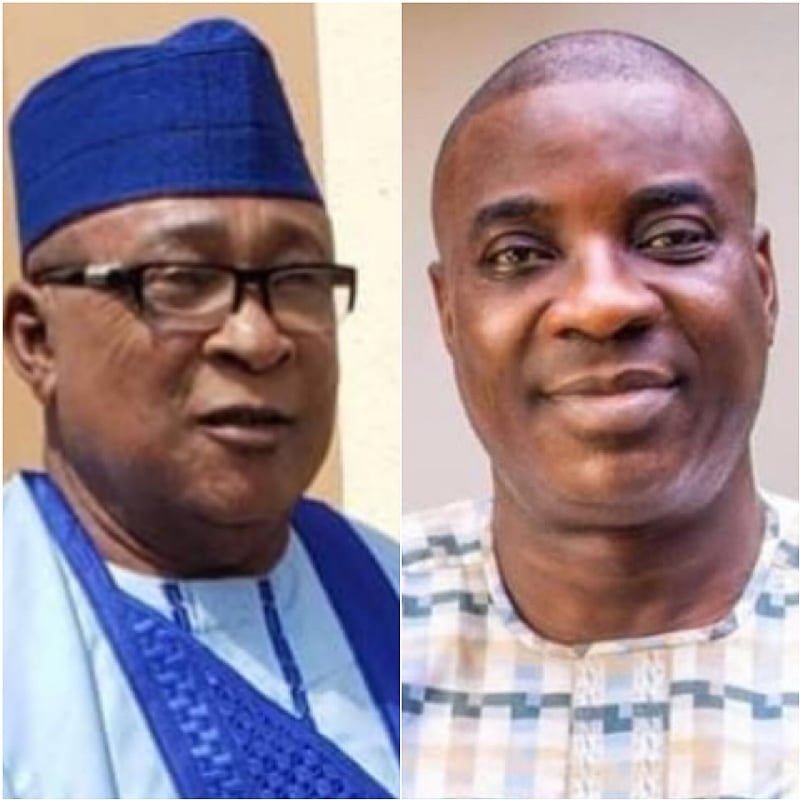The relationship between two prominent figures in Fuji music, General Ayinla Kollington and King Wasiu Ayinde Marshal (Kwam1), has been the subject of much speculation and rumor. Reports of a rift between the two artists have circulated for some time, often fueled by perceptions of rivalry and professional jealousy. However, General Kollington has unequivocally dismissed these claims, emphasizing the enduring paternal bond he shares with Kwam1. He has publicly stated that, despite Kwam1’s significant wealth and fame, he still considers him a son, and that the idea of a feud between them is unfounded. This clarification sheds light on the true nature of their relationship, highlighting the respect and affection that exists between them.
The rumors surrounding their relationship have taken various forms, including suggestions that Kwam1’s absence from Kollington’s mother’s funeral was evidence of a strained relationship. Kollington directly addressed this speculation, dismissing it as mere gossip and reiterating the strong familial connection they maintain. He emphasized that their bond transcends material possessions or professional achievements. By firmly refuting these rumors, Kollington aims to set the record straight and dispel any lingering doubts about the nature of his relationship with Kwam1. His consistent message of paternal affection underlines the depth of their connection.
Further illuminating the dynamics of their relationship, Kollington shared a compelling anecdote about a moment of reconciliation orchestrated by Kwam1. This story involved the late Fuji legend Sikiru Ayinde Barrister, with whom Kollington had experienced a period of estrangement. Following his mother’s passing, Kollington revealed that it was Kwam1 who encouraged him to reach out to Barrister and mend their fractured relationship. This gesture, Kollington explained, resonated deeply with him because it mirrored his own actions when Kwam1’s mother had passed away. At that time, Kollington had extended a hand of support and condolence by gifting Kwam1 a cow, a significant gesture of empathy and respect.
This poignant story highlights not only the close relationship between Kollington and Kwam1 but also the important role Kwam1 played in facilitating reconciliation between Kollington and Barrister. It underscores Kwam1’s respect for elders and his understanding of the importance of maintaining harmonious relationships within the Fuji music community. By prompting Kollington to reach out to Barrister, Kwam1 demonstrated his wisdom and maturity, emphasizing the value of forgiveness and unity. This act of mediation further solidifies the image of Kwam1 as not only a successful musician but also a peacemaker and a bridge-builder.
The narrative of reconciliation serves as a testament to the interwoven history of these Fuji music icons. It highlights the complex relationships that exist within the industry and the importance of mutual respect and support, even in the face of disagreements or rivalries. Kollington’s willingness to share this personal anecdote reveals the depth of his appreciation for Kwam1’s intervention and his recognition of Kwam1’s role in preserving the fabric of the Fuji music community. The story serves as a powerful example of the positive influence that younger generations can have on their elders, fostering understanding and encouraging reconciliation.
In conclusion, General Ayinla Kollington’s account of his relationship with King Wasiu Ayinde Marshal offers a compelling counter-narrative to the rumors of discord. His insistence on their paternal bond, his dismissal of the funeral absence as insignificant, and his recounting of Kwam1’s role in his reconciliation with Barrister all point to a relationship built on mutual respect and affection. This public declaration serves as a valuable clarification, offering insights into the often-complex dynamics within the Fuji music world and emphasizing the enduring power of family ties, mentorship, and reconciliation. It provides a more nuanced understanding of these two influential figures, reminding us that public perception doesn’t always align with the reality of personal relationships. The story also serves as a celebration of the enduring legacy of Fuji music and the importance of maintaining unity and respect within the artistic community.














